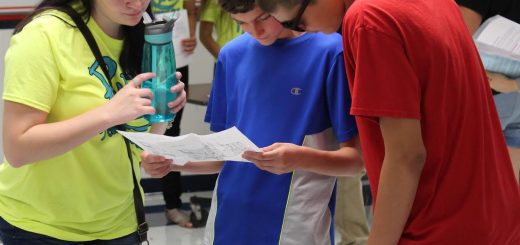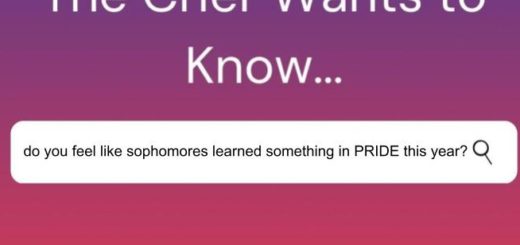PRIDE: Does it live up to the name?
The first bell of the school year rings. Freshmen scramble to locate their classes and navigate through the seemingly endless crowds of new faces. Everyone’s initial high school experience will be overwhelming, but at least there’s a helpful system designed to educate freshmen on exactly what they should expect, and help them fit into Conant. But is PRIDE really serving its intended purpose?
Although Conant has been utilizing freshmen PRIDE for a while (and just last year included sophomores due to Covid), many people who have attended PRIDE this year came to the same consensus: it was not as helpful as it should have been. In fact, most students inside a PRIDE classroom became exasperated when given instruction, heads in hands and eyes rolling. The most they learned from the classes were creative ways to hide their phones from prying upperclassmen’s eyes. From these two widespread views, PRIDE is in desperate need of change, and it all starts at its core: the curriculum.
The PRIDE curriculum should be changed to consider that freshmen don’t like being babied. Many times throughout the year, PRIDE leaders, who are only a few years older than the freshmen/sophomores attending PRIDE (juniors and seniors), would try to force the students to participate in activities that they had no interest in.
Examples of these activities include Kahoots, guessing games, and team-building activities, which were all intended to be fun for all students (mentors and freshmen/sophomores), but more often than not came off as condescending, as the games made the students feel like they are being seen as “young children in need of entertainment” instead of high schoolers in need of guidance.
PRIDE mentors have in the past threatened students with write-ups if they did not play these games. Holding punishments over the heads of students who didn’t want to participate in games designed to be fun for them comes off as patronizing, as if the students are wasting their own time, when in reality it should be centered around those students. When PRIDE continues next year, the use of activities such as these should be reduced, and at the very least students should have the option to decline without repercussions if they choose to.
Students attending PRIDE should be able to receive helpful information, without being left with questions. During the year, there were only a few days that provided any tangible information, and during those times, some students were left with more questions than answers by the end. For example, there were multiple days spent discussing ways to manage stress and how to study in preparation for final exams, which is a great lesson on its own, given it is a first-time experience for new students, but little information was given about finals themselves. Basic information such as a schedule and what to bring/expect was not covered in any of the lessons.
Freshmen student Dori Lee recalls that when the Harper Promise program was introduced, the PRIDE mentors spent more time talking about reasons not to volunteer at “Feed My Starving Children” than logical information, such as when community service hours had to be completed, and how. In order to avoid this uncertainty, PRIDE mentors can share their own experiences, in a way that shows these students that they are not alone in their struggles, creating a safe environment for them to feel comfortable asking questions.
The program should also consider changing the time allotted for PRIDE, as well as mandatory attendance. One of the biggest turn-offs when it comes to the program is that it takes up the first 25 minutes of lunch, and it is mandatory. Students with later lunch periods, especially 6th period, have to wait this extra time before eating lunch, which causes them to be hungrier throughout the day. This prompts more students to skip PRIDE and lie about their whereabouts when they actually go to the cafeteria for lunch. This not only affects students’ attendance records, but also takes away from the independence students feel when entering high school, and feels very elementary.
In light of these issues, and to make sure students are getting taught the most important lessons, there could be mandatory meetings once a week, and the rest of the time could be a resource, open during lunch hours, in which students can choose to stop into their designated PRIDE classrooms and ask questions to PRIDE mentors and advisors they need to. This system would make students feel more comfortable with having their lunch periods available, and still have a helpful alternative, where they can ask any questions they have.
Those who do not think the program needs any changes are not seeing things through the students’ perspective, which leads to frustration on all sides of the issue. These people might say that if the program was altered to mainly consist of information, students may perceive it as “preachy” and “boring.”
Although this may be true to a certain degree, it is more important that students new to Conant (and the entire high school experience) are provided with the proper guidance and knowledge that will allow them to succeed, instead of repetitious games and half-baked presentations.
Given the issues with the current program, people should see it is in desperate need of a change. Without these changes, freshmen will continue to dislike PRIDE and not get anything useful out of it, contradicting the entire premise of the program.





Recent Comments